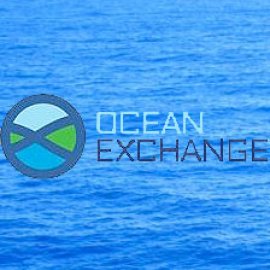The Ocean Exchange
-
-
ListenPause
I’m Peter Neill, Director of the World Ocean Observatory.
We have often argued on World Ocean Radio that the emphasis on adaptation and mitigation of adverse environmental circumstance and continuing degradation of the coast and deep ocean is not the ultimate answer for the future. Surely, as we have in the past, we must invent our way forward, understanding our mistakes, applying what we know, and applying our minds to best intentions and new ideas. While we look to governance to address compelling issues, we must also recognize the truth to be found in the details, in small innovations that address specific needs with revolutionary improvements. We are looking for solutions.
1. The Witt Energy Device is capable of capturing all chaotic motion and turning it into useable power could be used on commercial ships in the relatively near future to increase efficiency and reduce dependence on fossil fuels. Installed on ships, the self-contained device has few moving parts and collects energy from all dimensions of wave movement and transfers it to a flywheel to convert pitch and roll, up and down motion, into renewable power for scalable applications from battery charging to on-board refrigeration and heating to retrofits on navigational buoys, data gathering observation devices, and even small vessels. The unit would work 24/7, with negligible environmental impact, and with an efficiency that would significantly reduce carbon emissions from fossil fuels and conventional power units.
2. ECOsubsea, a Norwegian company, has developed a robotic-driven, in-port machine to clean algal growth and other environmental accumulation from the bottoms of ships to decrease drag, increase fuel efficiency by 5 to 15%, reduce air emissions through resultant conservation, collect and dispose of invasive species, and otherwise handle 97% of such waste underwater at reduced cost and within the increasing environmental regulations of ports and harbors.
3. EcoConcrete is a three-level system for renewal of marine infrastructure such as breakwaters, sea walls, piles and pillars that protect our ports, piers, and shipping channels – a new concrete composition that meets the formal requirements for marine construction, while creating a surface texture and coating that provides ecological surfaces that support the support and growth of shell fish and filter fishing communities. The resultant biological recruitment also protects these constructs from deterioration and damage from an aggressive salt-water environment. Units are designed to support biogenic buildup, calcium carbonate deposition by marine organisms such as oysters, mussels, barnacles and corals which cover the substrate, add volume, weight and contribute to its stability. In effect, EcoConcrete shifts these structures from dead zones to new habitat for increased biodiversity.
4. Download the Ocean uses science of oceanography to create data products designed to save fuel, reduce emissions and improve efficiency for the shipping industry. Utilizing hydrodynamic models, satellite and ocean observations to include tidal streams, ocean currents, sea surface temperature and wave forecasts, data products are constructed, converted, formatted and made available for download to ship navigation and voyage optimization systems via a custom application designed to save fuel, reduce emissions, and improve efficiency for the shipping industry on every passage.
In 2013, the compound effects of high oil prices, environmental regulation and over capacity motivated ship operators to use “slow steaming” as a technique to save fuel and emission and increase profitability. A nominal speed reduction from 27 knots to 18 knots reduces fuel consumption by 75%. In 2010, 73 percent of the Maersk Line fleet was slow steaming. Using Download the Ocean, commercial trials and simulations have shown savings of between 1 – 12% in either time or fuel consumed on commercial shipping routes. A 1% reduction represents a saving of approximately 13 million tons of CO2 from global shipping in 2013.These may seem small things, but they signify the impetus for invention, each adds to the total calculation of energy conserved through alternative ideas that taken together result in serious measurable outcomes. Thanks to all these inventors and entrepreneurs and the sponsors and forward-thinkers at Ocean Exchange.
We will discuss these issues, and more, in future editions of World Ocean Radio.
The Ocean Exchange, founded in 2010 and based in the United States, offers a platform for identifying, accelerating and promoting the solutions and innovations that positively impact the environment, economies and health. They do this by connecting innovators and organizations, advocating for collaborations, and providing capital investment through an annual contest and financial awards. In this episode of World Ocean Radio, host Peter Neill will outline four recent prizewinners that offer small but remarkable practices and inventions that address key ocean problems. Learn more about the Ocean Exchange online at the OceanExchange.org.
__________________________________________________________________________
Peter Neill, host of World Ocean Radio, provides coverage of a broad spectrum of ocean issues from science and education to advocacy and exemplary projects. World Ocean Radio is a weekly series of 5-minute audio essays available for syndicated use at no cost by college and community radio stations worldwide. Contact us for more information or to become a broadcast affiliate.
- Login to post comments



